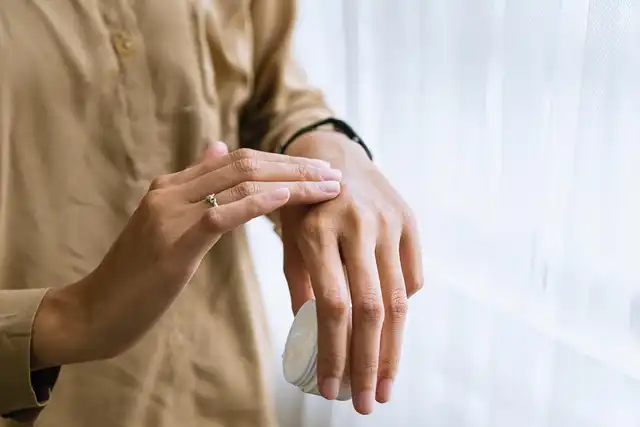Skincare Routines: Simplicity & Sun Protection Key

Simplify skincare! Dermatologists emphasize gentle cleansers, moisturizers, and SPF 30 for effective skin protection. Avoid overcomplicated routines and UV radiation.
Red-Light Therapy: Limited Benefits
Dr. Suozzi stated that while research study shows there may be some benefit to red-light treatment masks, which may aid with collagen manufacturing, they are “not something that’s going to be transformative” for the skin.
UV Radiation: Aggravating Skin Issues
“The what’s what is, nine out of 10 skin treatment issues on the face that people pertain to see me for are aggravated by UV radiation from the sun,” claimed Dr. Oyetewa Asempa, the supervisor of the Skin of Shade facility at Baylor College of Medication.
“The truth of the matter is, 9 out of 10 skin treatment worries on the face that people come to see me for are intensified by UV radiation from the sunlight,” said Dr. Oyetewa Asempa, the supervisor of the Skin of Shade clinic Svitlana – stock.adobe.com
Collagen & Aging Skin
As we get older, our skin reduces down its manufacturing of collagen, which keeps our skin bouncy and flexible. They advise not utilizing them until you are about 30 or older– any type of earlier can trigger much more troubles, like skin irritability.
“The truth of the matter is, nine out of 10 skin treatment worries on the face that individuals involve see me for are gotten worse by UV radiation from the sunlight,” stated Dr. Oyetewa Asempa, the supervisor of the Skin of Shade center Svitlana– stock.adobe.com
Cost vs. Efficacy in Skincare
“Cost does not equal efficiency, and it does not equal much better results,” Dr. Jordan Lim stated. “A lot of the components you’re seeing in a $6 cream are also in a $20 cream, likewise because $300 cream that you see a star making use of.” photoguns– stock.adobe.com
“Price does not equal efficacy, and it does not equal much better outcomes,” Dr. Jordan Lim claimed.
As we get older, our skin reduces down its production of collagen, which keeps our skin bouncy and elastic. Retinoids and retinol creams can aid, skin doctors stated. They advise not using them till you are about 30 or older– any type of earlier might trigger a lot more problems, like skin irritability.
Social Media & Skincare Overcomplication
There always seems to be someone on TikTok, YouTube, or Instagram revealing you a multistep skincare regimen they advocate. They could use expensive products like snail mucin or red-light treatment masks that presumably moisten your skin or help reduce great lines.
“Social media site is having such a substantial influence on what we’re utilizing in our skin, and every person is acting like their very own medical professional and trying to detect their own skin type and explore different regimens,” said Dr. Kathleen Suozzi, a teacher of dermatology at Yale Institution of Medication. “And truly, the primary overarching point is that skin care regimens have actually ended up being means overcomplicated.”
Red-light therapy masks, snail mucin– slimy liquid that is promoted as hydrating– and other products can be really costly. Do not let the cost fool you, stated Dr. Jordan Lim, a dermatology teacher at Emory College School of Medication.
“Price does not equal efficacy, and it does not equal better results,” Dr. Jordan Lim claimed. “A great deal of the ingredients you’re seeing in a $6 cream are additionally in a $20 cream, likewise in that $300 lotion that you see a celeb using.” photoguns – stock.adobe.com
Essential Skincare Basics
“Cost does not equivalent efficacy, and it does not equivalent better results,” Lim claimed. “A great deal of the components you’re seeing in a $6 lotion are additionally in a $20 lotion, also because $300 cream that you see a celeb using.”
Skin doctors claim a skin care regimen ought to start with 3 things– a gentle cleanser, a moisturizer to hydrate the face and a sun block with at the very least SPF 30. Too many items can aggravate delicate skin and be repetitive, considering that lots of items share the same ingredients.
1 dermatologist2 red-light therapy
3 skin health
4 skincare routine
5 sun protection
6 UV radiation
« Alternative Nostril Breathing: Reduce Anxiety & Increase FocusMicroplastics, APOE4 Gene, and Alzheimer’s: Cognitive Decline Risk »
